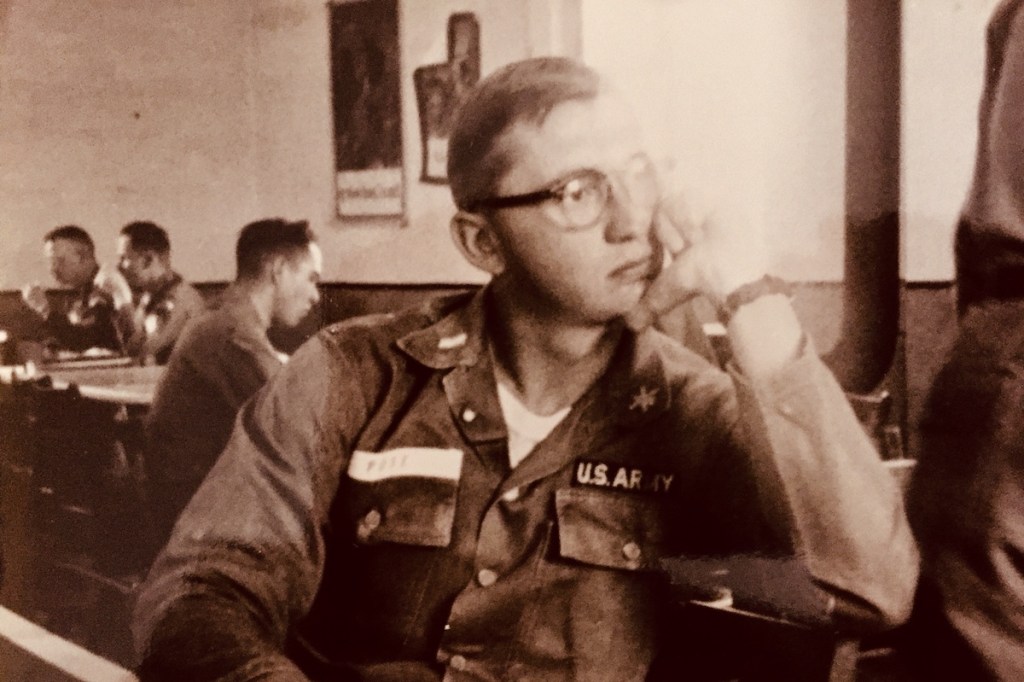Sixty years ago, August 1961, East Germany began constructing the Berlin Wall that became the most evocative symbol of the Cold War. We did not know how things would end, but I clearly remember how the symbol began in a whirlwind.
I was stationed in Germany in 1960-61, an artillery lieutenant in an “Honest John” rocket battalion equipped with nuclear warheads. Our combat mission was to disrupt Warsaw Pact troops if they crossed the inter-German border, but for more than a year I scarcely imagined war. The atmosphere changed in the spring of 1961 as Nikita Khrushchev stepped up Soviet demands for an end to the four-power control over Berlin that dated from 1945. At summit talks with President John F. Kennedy in Vienna in June, the Soviet leader declared he would resolve Berlin’s divided status by December. Having been humiliated by the Bay of Pigs fiasco in April, Kennedy felt “savaged” by his summit adversary, and he came home determined to prepare America for the “cold winter” he promised Khrushchev.
Both sides escalated their rhetoric and military preparations in July. Stars and Stripes used the word “crisis,” and letters from home grew anxious. Kennedy spoke to the nation on July 25, comparing West Berlin to Bastogne and announcing he would call up reserves and extend tours of active duty. The Pentagon considered using nuclear weapons to defend West Berlin, from tactical warheads against ground forces to a pre-emptive attack on the Soviet Union. Khrushchev warned that war over Berlin would become a thermonuclear holocaust.
East Germany’s main worry was migration; around 30,000 of its citizens fled to the West in July, the highest monthly total since 1953. On August 13, the East German government closed the border between East and West Berlin to keep its own people in, and soon barricades appeared that became a wall. Surprised by these moves that fell short of what his advisers had feared, Kennedy sent a political mission to West Berlin on Saturday the 19th. On the 20th, an American battle group was dispatched by road to West Berlin to reaffirm Western rights of access. With Washington on edge and my battalion on stand-by alert, the battle group warily traversed an armed gauntlet of East German autobahn.
Sign up for Indy Today to receive fresh news from Independent.com, in your inbox, every morning.
The alert on Sunday, August 20 was the first time I thought the Cold War’s worst case might actually happen: A trigger-happy moment in Germany could initiate nuclear war. My platoon sergeant thought so, too, a weathered chain-smoker from Oklahoma who had fought under Patton in France. Many of the battalion’s faces were pale and fixed. I tried to visualize combat, and the prospect of “mating” warheads to rocket motors no longer amused me. The combined kilotonnage of our warheads far exceeded that of the atom bombs dropped on Japan. I was ready to obey orders for war in Germany, little more than 15 years after I had stockpiled cherry bombs in case the Wehrmacht invaded my neighborhood in Madison, Wisconsin.
The battle group arrived in Berlin without incident, and we stood down, thankful but subdued. Next morning, the Secretary of the Army said war was now unlikely: “If there were to be war, it would have started yesterday.” That is a bygone yesterday. Today, Germany is united, NATO includes former members of the Warsaw Pact, and our armed forces have been fighting in the Middle East for 20 years.
Gaines Post Jr. is professor emeritus of history, Claremont McKenna College. A graduate of Cornell University, he served as a lieutenant in the U.S. Army in Germany and attended Oxford University as a Rhodes Scholar before obtaining his Ph.D. in modern European history at Stanford University. A specialist on modern Germany and the origins of the Second World War, he is the author of Memoirs of a Cold War Son (2000), and Blue Bug, Red Road (2008). He has lived in Santa Barbara since 2018.
Support the Santa Barbara Independent through a long-term or a single contribution.

